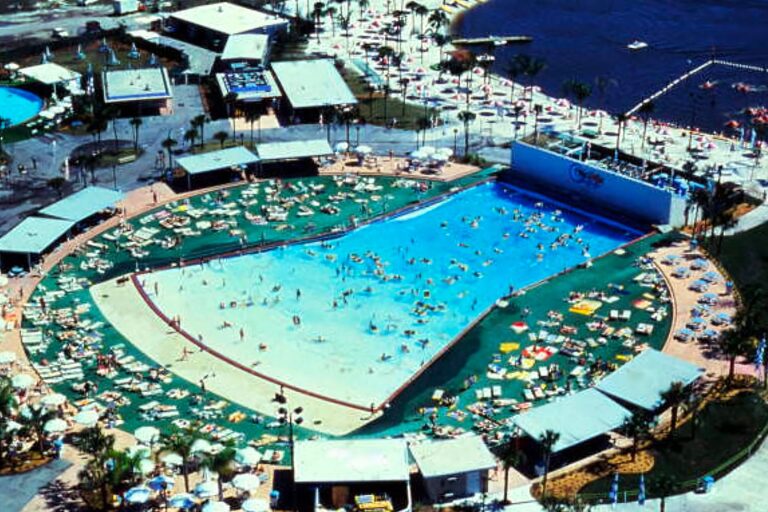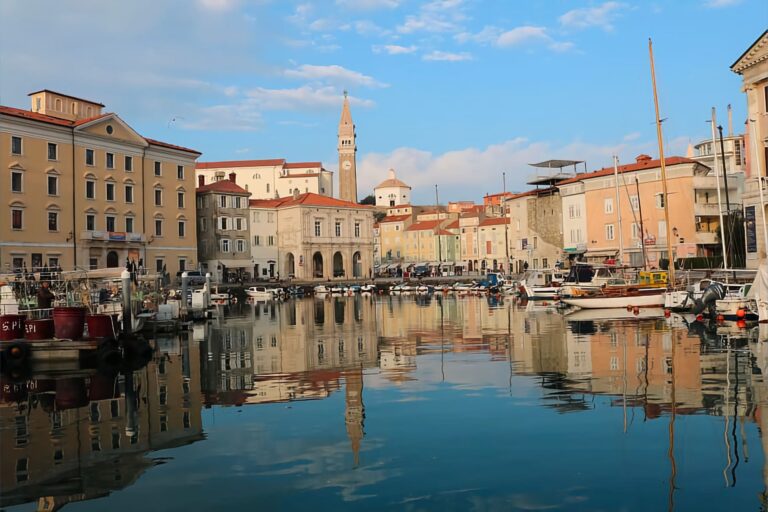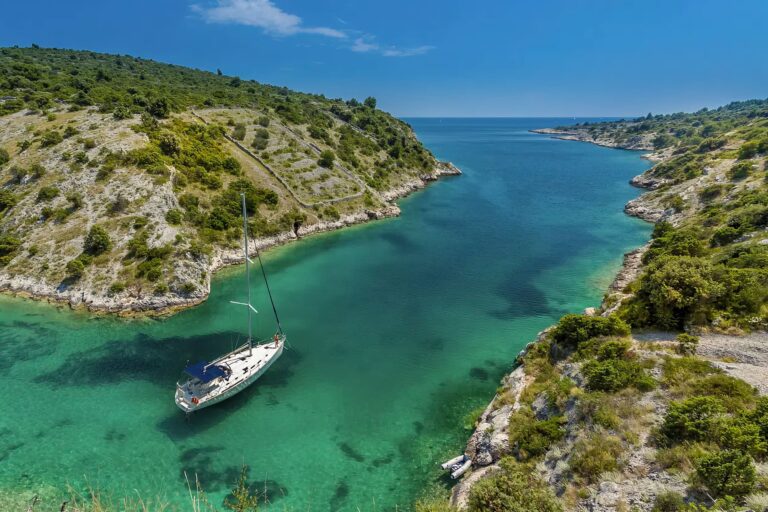Europe's Most Spectacular Football Stadiums: Unmissable Even for Non-Football Enthusiasts
Europe is a treasure trove of awe-inspiring football stadiums, each one a testament to the grandeur and passion of the beautiful game. These architectural wonders are not just for football aficionados but are captivating attractions for anyone who appreciates history, atmosphere, and unique design. This article will guide you through some of the most remarkable football stadiums in Europe, each with a distinctive feature that sets it apart.
1. Westfalenstadion (Signal Iduna Park), Dortmund, Germany
The Westfalenstadion, known as Signal Iduna Park, is a colossal structure in Dortmund, Germany. It is the fortress of the Borussia Dortmund team and has been crowned the best stadium in Europe based on fan satisfaction. The stadium captivates with its electrifying atmosphere, particularly during home games. What sets Westfalenstadion apart is its "Yellow Wall," a massive stand teeming with fervent fans, creating a sea of yellow and black during matches.
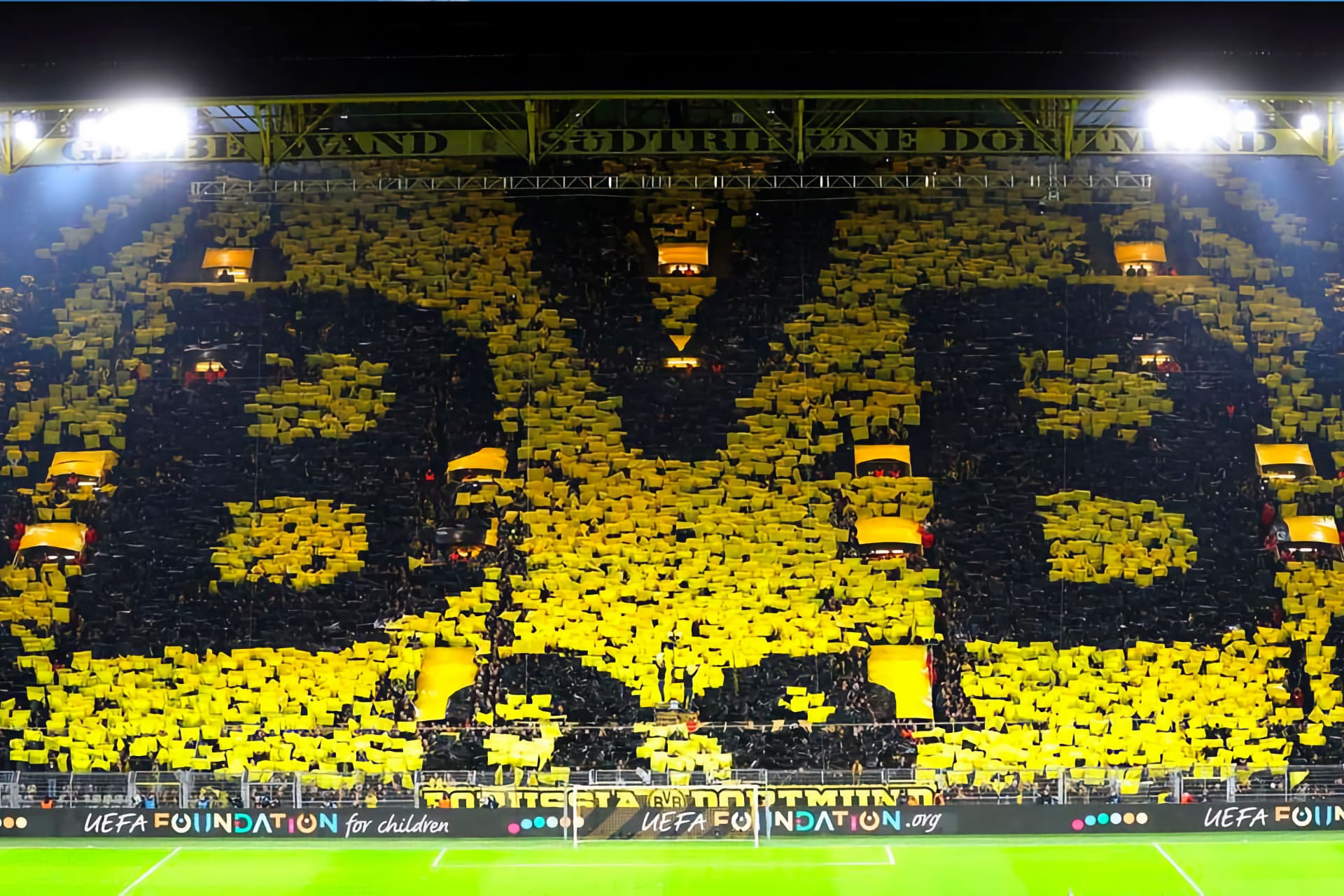
2. Camp Nou, Barcelona, Spain
Camp Nou, the home ground of FC Barcelona, is Europe's largest football stadium with a massive capacity of 99,354. This gigantic stadium is a must-visit for its sheer size and the electrifying atmosphere during matches. What makes Camp Nou special is its museum, which is the most visited museum in Barcelona, showcasing the rich history and glorious achievements of FC Barcelona.
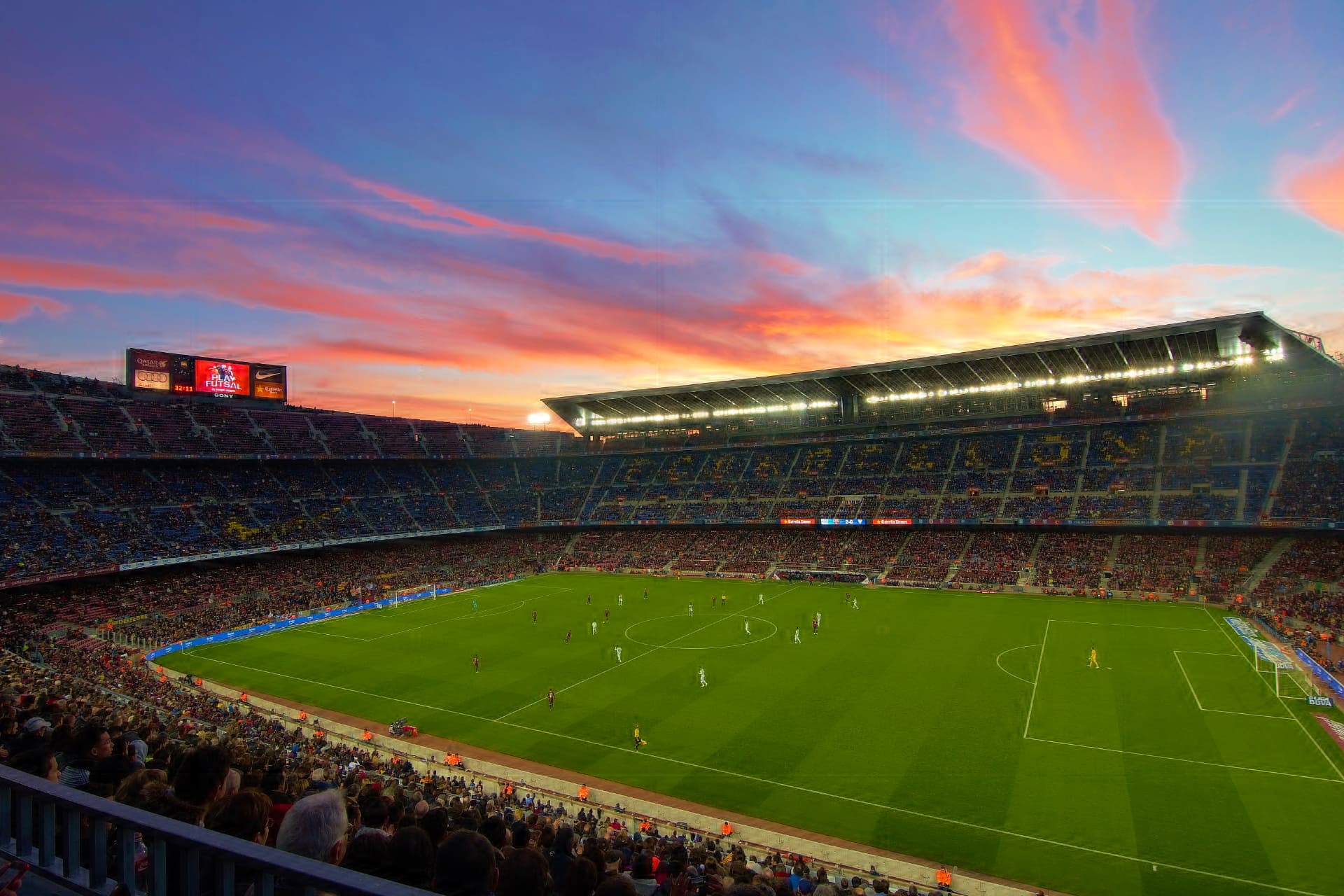
3. Santiago Bernabeu, Madrid, Spain
The Santiago Bernabeu, the home ground of Real Madrid, is another iconic stadium in Spain. With a capacity of 85,454, it is one of the world's most famous and prestigious football venues. Santiago Bernabeu stands out with its retractable roof and the planned addition of a 360-degree video screen, making it one of the most technologically advanced stadiums in the world.
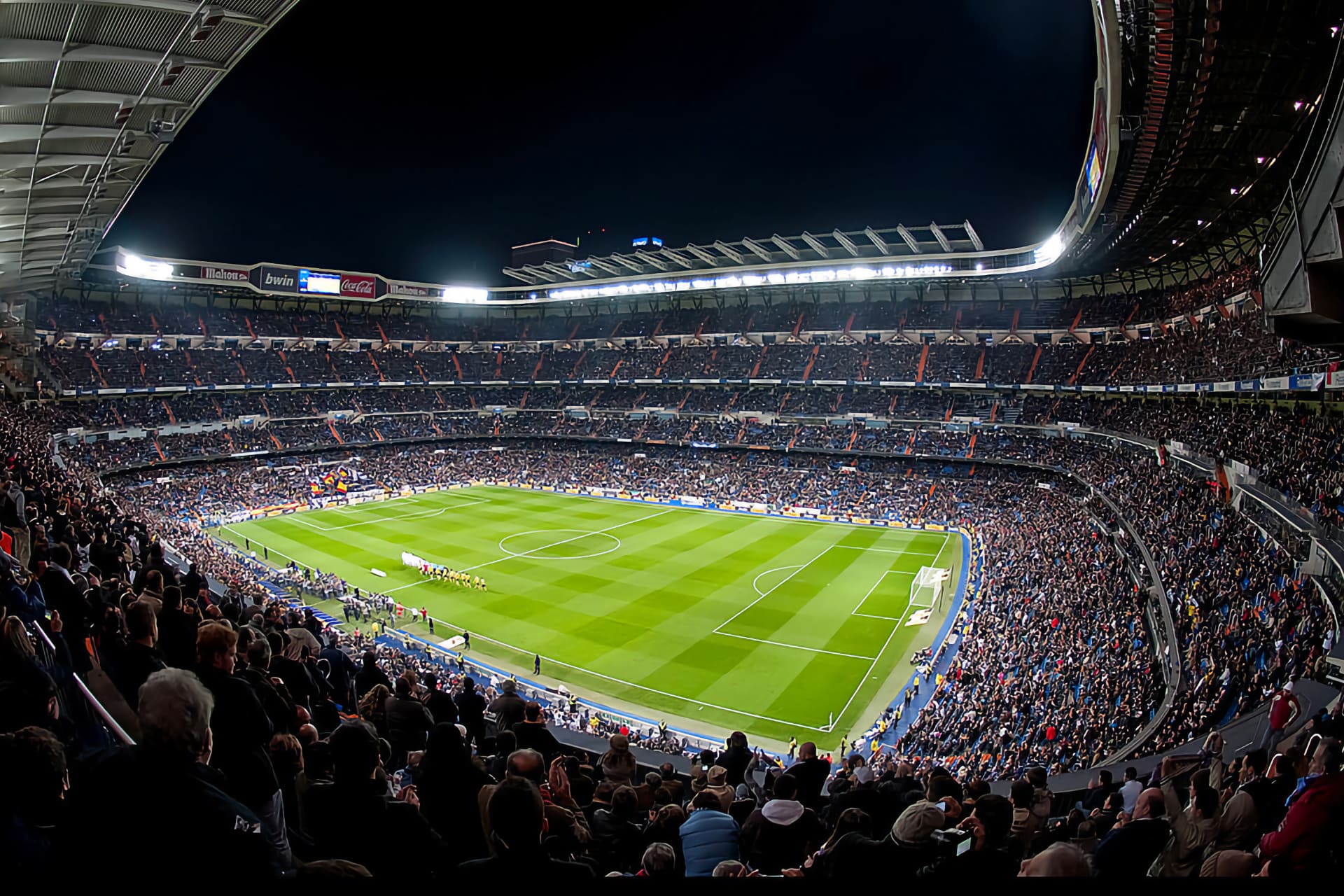
4. Allianz Arena, Munich, Germany
The Allianz Arena in Munich, home to Bayern Munich, is known for its distinctive inflated ETFE plastic panels that can be lit up in different colors. This modern and innovative design makes it one of the most visually stunning stadiums in the world. Allianz Arena is unique for its color-changing exterior, which lights up in red for Bayern Munich and blue for 1860 Munich games.
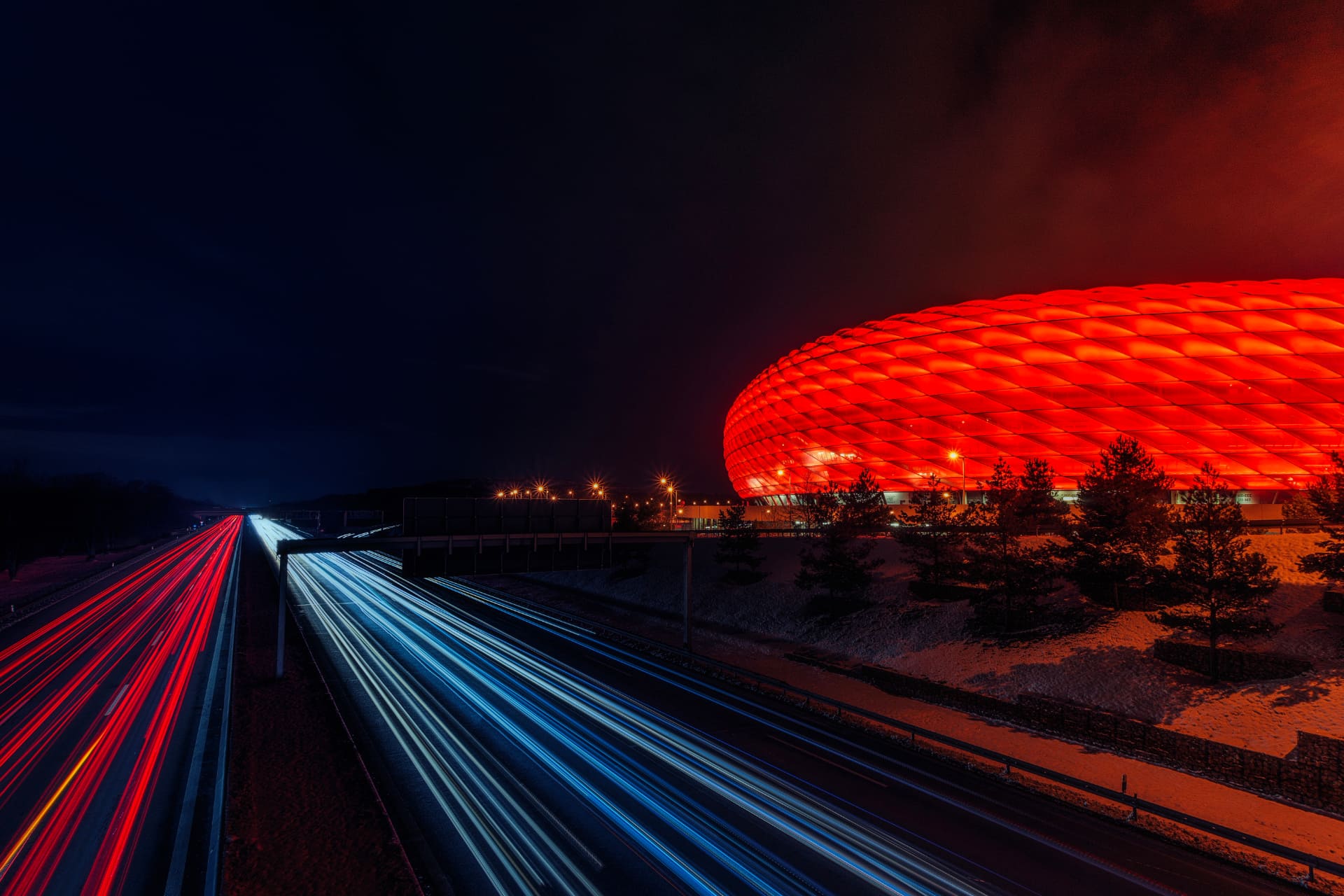
5. Old Trafford, Manchester, England
Old Trafford, known as "The Theatre of Dreams," is the home of Manchester United. With a capacity of 75,731, it is England’s largest club stadium. Old Trafford is notable for its Munich Tunnel, which pays tribute to the Busby Babes who tragically lost their lives in the Munich air disaster in 1958.
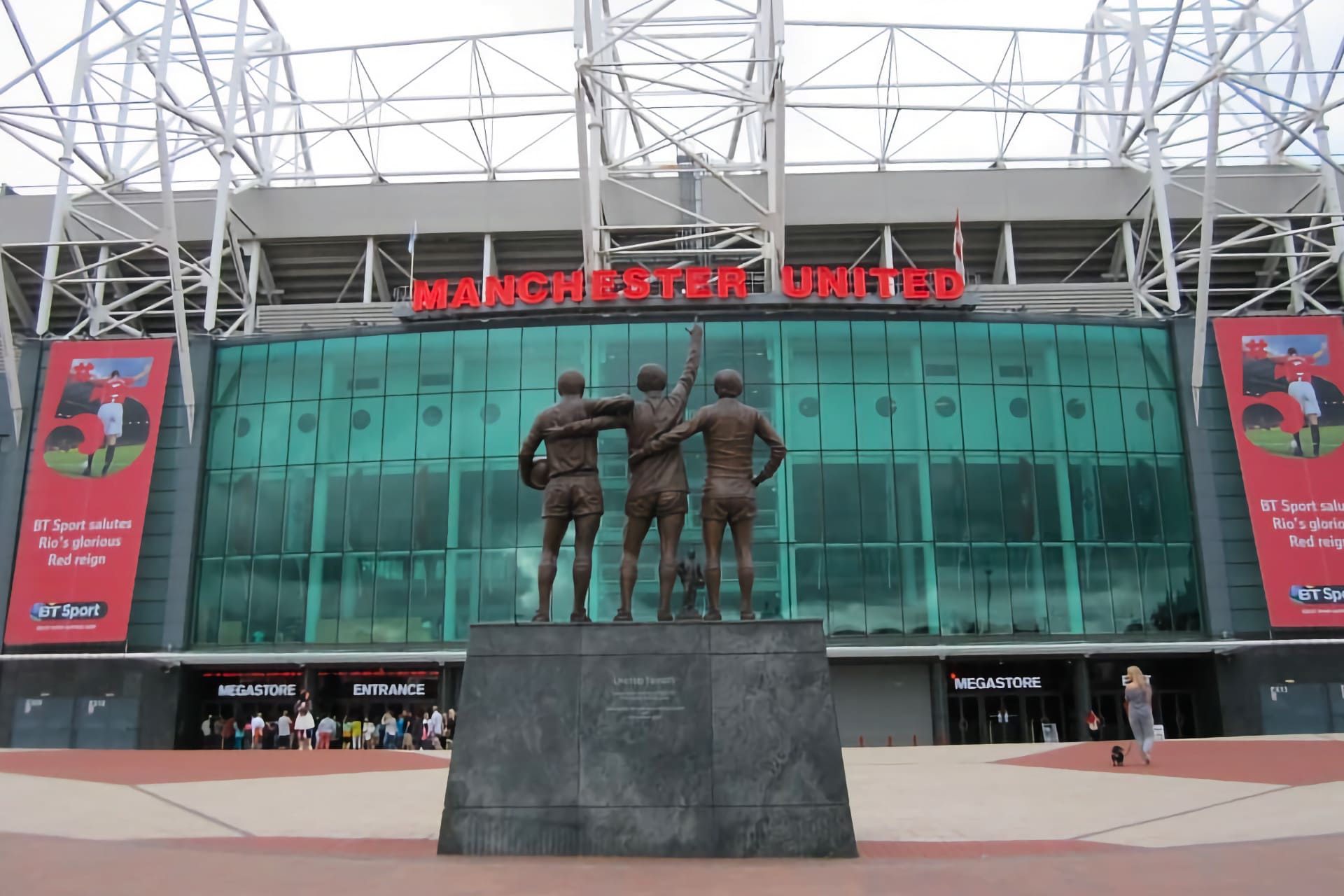
6. San Siro, Milan, Italy
San Siro, officially known as Stadio Giuseppe Meazza, is a historic stadium in Milan, Italy. It is the home of AC Milan and Internazionale. San Siro is unique in that it is one of the few stadiums in the world shared by two rival teams, making it a symbol of the city's rich football heritage.
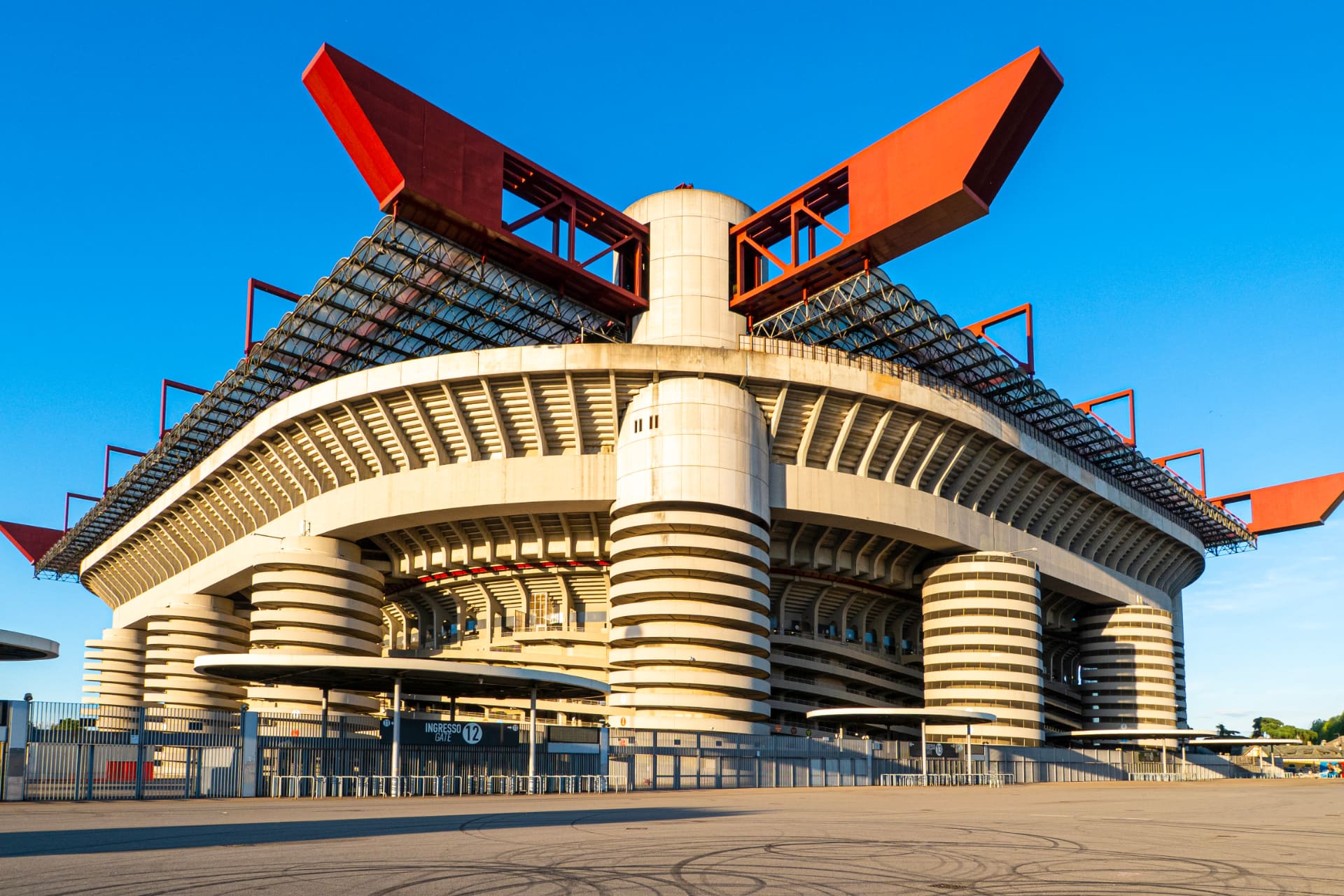
7. Wembley Stadium, London, England
Wembley Stadium in London is one of the most iconic stadiums in the world. It is the home of the England national team and hosts major football matches including the FA Cup Final. Wembley is known for its iconic arch, the longest single-span roof structure in the world, which can be seen across London.
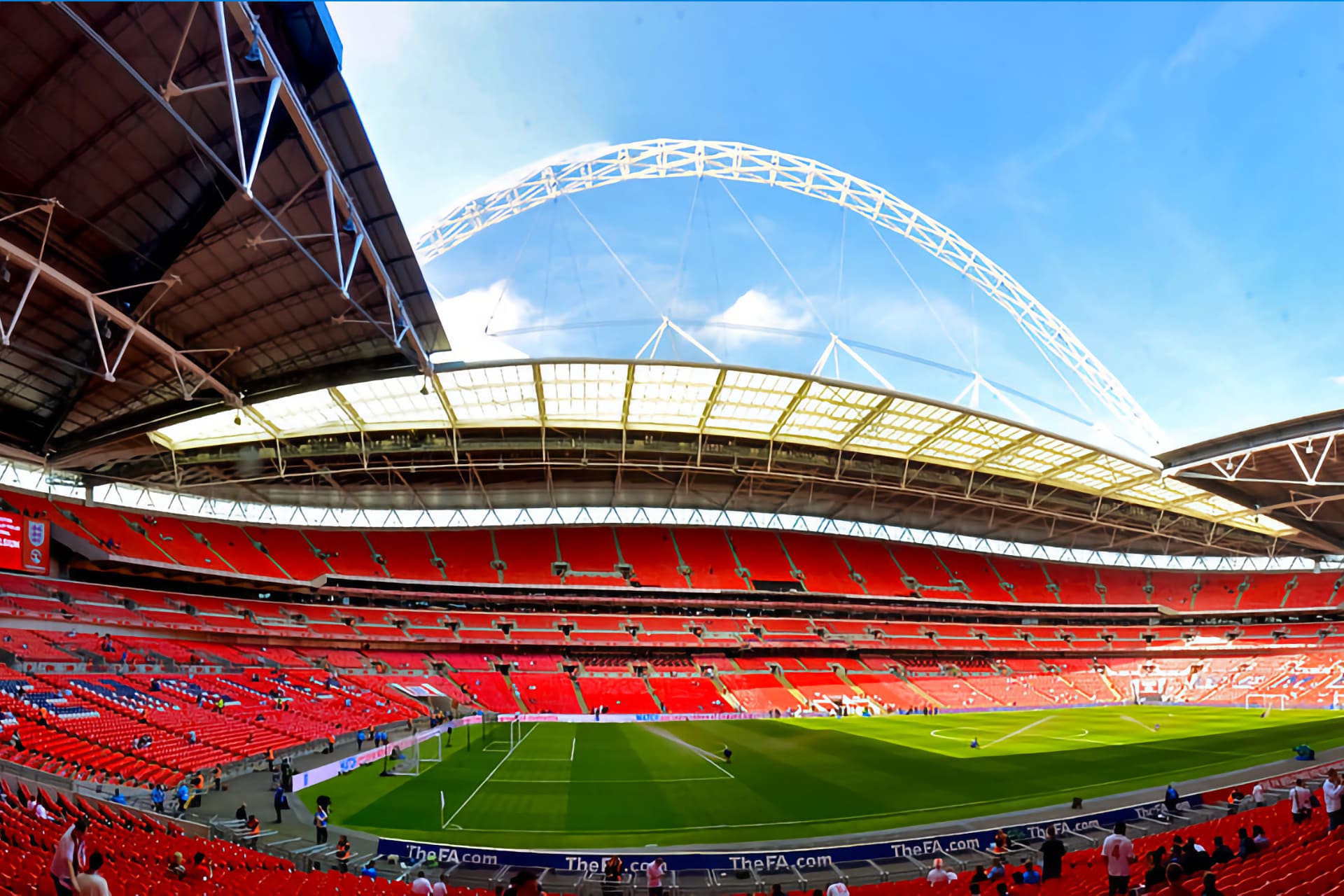
8. Anfield, Liverpool, England
Anfield, home to Liverpool F.C., is one of the most historic football stadiums in England. Anfield is famous for the "This is Anfield" sign located in the player's tunnel, a legendary symbol of the club's rich history and tradition.
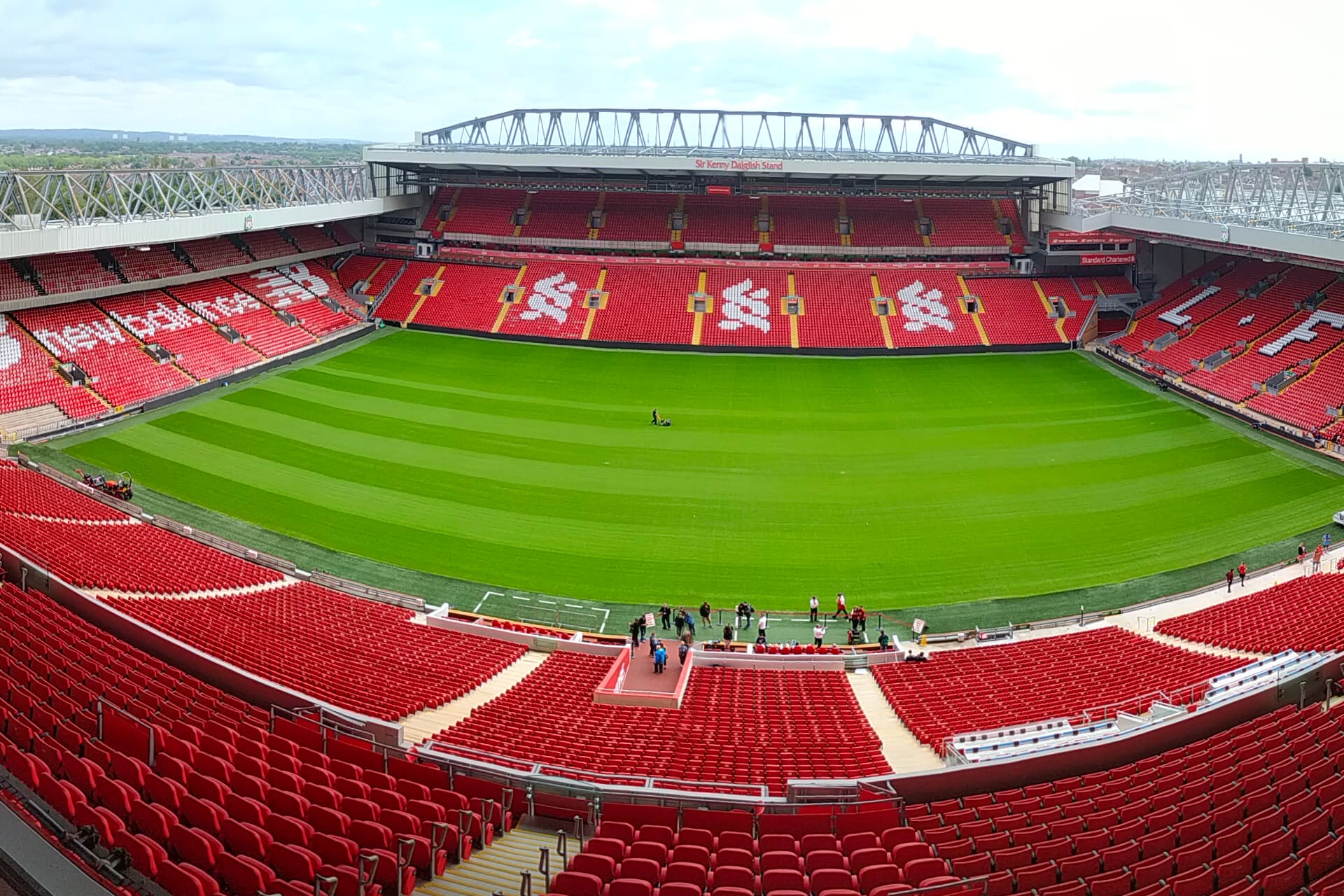
9. Juventus Stadium, Turin, Italy
The Juventus Stadium in Turin, Italy, is a modern marvel. It is the home of Juventus F.C. and is known for its close proximity of the fans to the pitch, creating an intimate and intimidating atmosphere. Juventus Stadium stands out as Italy's first environmentally sustainable stadium, setting a new standard in the design of football arenas.
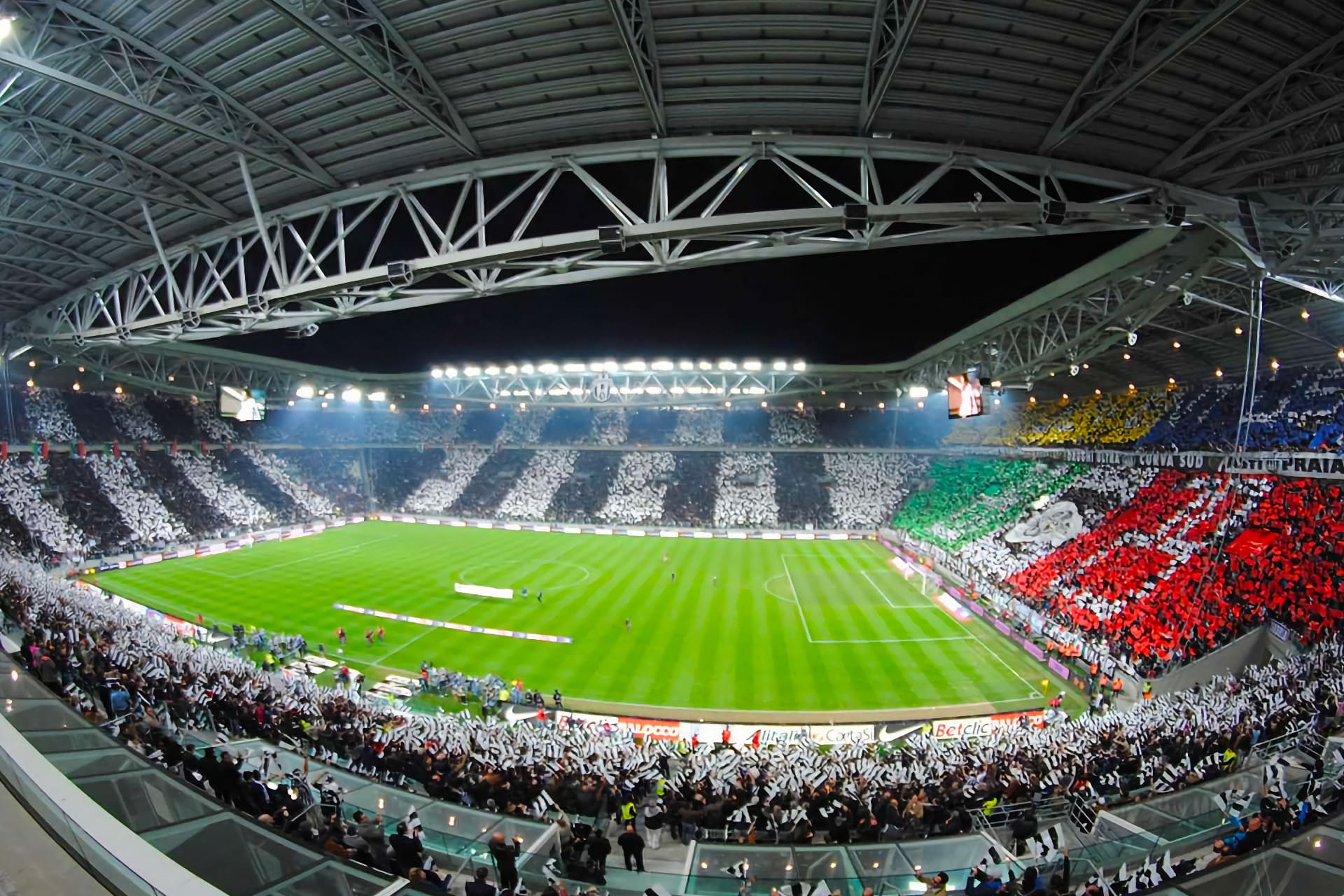
10. Estadio Da Luz, Lisbon, Portugal
Estadio Da Luz, home to Benfica Lisbon, is one of the most beautiful stadiums in Europe. What makes Estadio Da Luz shine is its roof, designed to allow sunlight to flood the pitch, living up to its name "Stadium of Light."
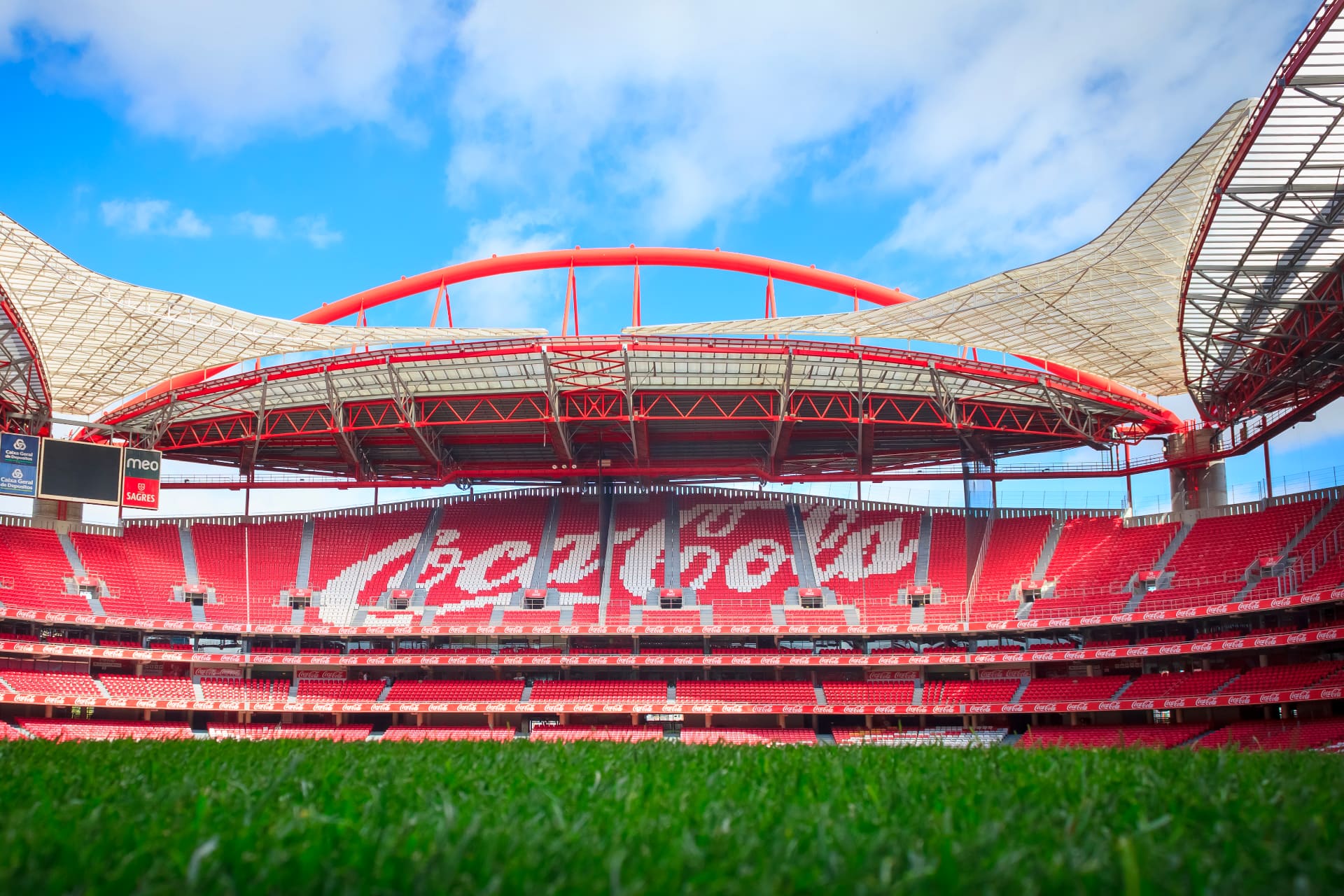
Summary sheet
| Stadium | Location | Home Team | Capacity | Unique Fact |
|---|---|---|---|---|
| Westfalenstadion (Signal Iduna Park) | Dortmund, Germany | Borussia Dortmund | 81,365 | Known for its "Yellow Wall," a gigantic stand packed with passionate fans |
| Camp Nou | Barcelona, Spain | FC Barcelona | 99,354 | Home to the most visited museum in Catalonia |
| Santiago Bernabeu | Madrid, Spain | Real Madrid | 85,454 | Features a retractable roof and a planned 360-degree video screen |
| Allianz Arena | Munich, Germany | Bayern Munich | 75,000 | Known for its color-changing exterior |
| Old Trafford | Manchester, England | Manchester United | 75,731 | Features the Munich Tunnel, a tribute to the Busby Babes |
| San Siro | Milan, Italy | AC Milan and Internazionale | 80,018 | One of the few stadiums shared by two rival teams |
| Wembley Stadium | London, England | England national team | 90,000 | Known for its iconic arch, the longest single-span roof structure in the world |
| Anfield | Liverpool, England | Liverpool F.C. | 53,394 | Home to the "This is Anfield" sign, a symbol of the club's history |
| Juventus Stadium | Turin, Italy | Juventus F.C. | 41,507 | Italy's first environmentally sustainable stadium |
| Estadio Da Luz | Lisbon, Portugal | Benfica Lisbon | 65,647 | Known for its roof, designed to allow sunlight to flood the pitch |
These spectacular football stadiums in Europe offer more than just a venue for the beautiful game. They are landmarks, filled with history and unique features that make them worth visiting, even for those who are not football fans. So, the next time you find yourself in Europe, make sure to add these stadiums to your itinerary.
Frequently Asked Questions
Which is the largest football stadium in Europe?
A1: Camp Nou in Barcelona, Spain, is the largest football stadium in Europe. It has a seating capacity of 99,354.
Which stadium is known as "The Theatre of Dreams"?
Old Trafford, the home of Manchester United, is known as "The Theatre of Dreams."
Which stadium is shared by two rival teams?
San Siro, officially known as Stadio Giuseppe Meazza, in Milan, Italy, is shared by two rival teams, AC Milan and Internazionale.
Which stadium is known for its "Yellow Wall"?
The Westfalenstadion, also known as Signal Iduna Park, in Dortmund, Germany, is known for its "Yellow Wall," a massive stand filled with fervent fans.
Which is the first environmentally sustainable stadium in Italy?
The Juventus Stadium in Turin is Italy's first environmentally sustainable stadium.
What is the unique feature of Estadio Da Luz?
Estadio Da Luz, home to Benfica Lisbon, is known for its roof, designed to allow sunlight to flood the pitch, living up to its name "Stadium of Light."
What is the iconic feature of Wembley Stadium?
Wembley Stadium in London is known for its iconic arch, the longest single-span roof structure in the world.
What is the "This is Anfield" sign?
The "This is Anfield" sign is located in the player's tunnel at Anfield, home to Liverpool F.C. It is a legendary symbol of the club's rich history and tradition.
Which stadium has a retractable roof and a planned 360-degree video screen?
The Santiago Bernabeu, home to Real Madrid, has a retractable roof and a planned addition of a 360-degree video screen.
Which stadium is known for its color-changing exterior?
The Allianz Arena in Munich, home to Bayern Munich, is known for its color-changing exterior. It lights up in red for Bayern Munich and blue for 1860 Munich games.

